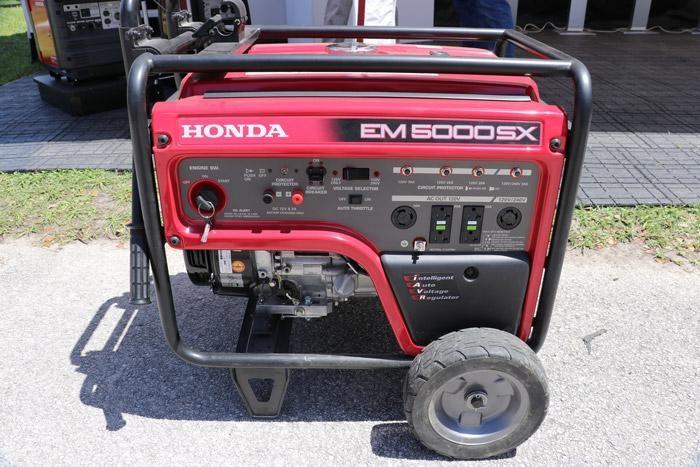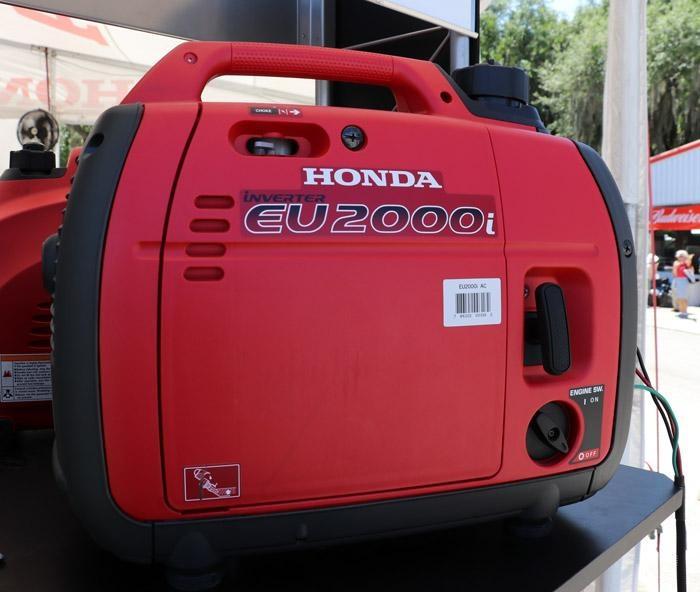Camping successfully in a remote location requires the use of a convenient source of power to support your lights, fridges, heaters and other essential appliances. While there are several options for powering your crucial devices, a super quiet portable generator happens to be the most appropriate. The reason is it produces 240 V (the voltage your camping appliances need), can easily be moved from one remote place to another and produces the least noise possible. Imagine the peaceful and relaxing environment in a remote camping location. All these can only be realized with the aid of a handy, quiet portable generator. Below is everything you need to know about portable generators
Establish your Power needs
Add up the wattage requirements of all the appliances you intend to power simultaneously. For some devices, their power ratings are listed on a sticker on its surface. Take the running wattage and add to those of other appliances. For the appliances whose ratings are not labeled, power each separately and note the wattage they draw from the unit. Note that starting wattage for any device is slightly higher than running wattage. As such, it is important to consider starting wattage while doing your calculations. If your generator cannot supply the total starting power, you will not be able to run the appliances.
Below is a list of common household appliances most people use while camping and tailgating
- Blender 850 Watts, 400 W
- Electric Grill 1650 Watts, 1800 Watts
- Hair Dryer 1900 Watts, 1800 Watts
- Coffee maker 600 Watts, 600 Watts
- Electric heater, 1300 Watts, 1300 Watts
- Flat screen Television 120 Watts, 120 Watts
- Laptop PC 225Watts, 225 Watts
- Portable Fan 120 Watts, 40 Watts
- DVD player 350 Watts, 350 Watts

Features to look out for
When shopping for a generator for camping purposes, the following features matter most:
Noise Level
Some manufacturers choose to omit this crucial detail. However, if there is any one feature a camper needs to pay attention to, it is the noise level. Settle for a dealer who is willing to demonstrate running a generator. Credible dealer showrooms are ready to test run a generator for you. If you there are RV and camping show, take advantage of the opportunity to find out the noise levels of different generators. They provide an exciting setting, to establish the noise generators produce and see new outdoor recreation products.
Benchmark
Since normal conversation is rated 65 Decibels (dB), any generator whose noise level is less than 65 dB or even around that figure will not disrupt regular discussions. Sound effect reduces with distance. So, if it will be possible to position your generator some 10 meters from your camping site, you can still use a generator of; say 68 dB, noise levels.
Power Output
A generator’s power output refers to the wattage rating, usually given in two production levels, maximum and Rated power. Maximum wattage indicates the maximum output a generator can generate and is typically available for a maximum of 30 minutes. Rated, on the other hand, refers to what a generator can generate for extended periods of time (generally 90 percent of Max power). Quiet portable generators used for tailgating are typically categorized into the following three sizes depending on their power output.
- Lightweight models, compact generators outputting a maximum of 1000 W of power
- Slightly Larger models, providing up to 2000 W of power
- Huge Models, capable of generating more than 3000 W of power

Run Time
Manufacturer runtime refers to the maximum time your generator can run without requiring to be refueled. It depends on the load being supported, the generator’s efficiency, and the capacity of its fuel tank. Manufacturers usually supply data on run time at full rated load and a quarter rated loads. Some manufacturers provide run time for a quarter rated loads only because it is longer than that at full rated load and hence appears much more remarkable. It is important to know that inverter generators automatically throttle when the generator is in use depending on the wattage ratings of the appliance supported. Thus, you should consider the indicated run time a rough guide only.
Dry weight
It is the weight of your generator when the fuel tank is empty. A USA gallon of fuel weighs slightly above 6 lbs. For smaller, small generators the difference in generator weight when the fuel tank is full is not significantly different from its dry weight. However, for larger generators ( 3000 W models), full fuel tank weight adds some 20 lbs.
Warranty
The warranty extended by the manufacturer plays a significant role. The duration of the warranty acts as an assurance for the quality of the generator you are buying. A closer look at the warranty to establish what it covers and the parts covered by the warranty is vital. Some manufacturers extend the limited warranty. Limited warranty implies that the warranty comes with certain limitations and conditions on the parts covered and a period for which the agreement can be claimed. Unlimited, on the other hand, has minimal (if any) conditions.

Additional Generator Features to Consider Before Buying
The extra features you may want to ensure they are included in the generator you are about to purchase include:
Parallel Capability: Generators with this compatibility allow you to combine two or more generators to multiply the power output. It is a very attractive feature, particularly for quiet portable inverter generator as it provides a convenient way of obtaining more power from your generator without sacrificing portability.
Low Oil Monitor: Some models include this great feature, intended to protect the generator by switching off the engine whenever the quantity of oil reduces below a certain level.
Spark Arrestor/Muffler: This is a safety feature included in quiet portable generators so as to inhibit the possible occurrence of errant sparks. The feature is particularly important if you are planning to use your generator for camping in a dry wilderness region where fire outbreaks are rampant.
Circuit Protector: Shuts of the Alternating power of your generator whenever a huge load is connected to the generator making it draw excess power. It also prevents short circuiting. It protects a generator from overloading.
Since additional features are very many, read the best quiet portable generator review extensively to find out the extra features suitable for your particular situations. Generator experts dedicate their time towards finding the trending features for various conditions.
To enjoy your camping in a serene, remote location, you need a quiet portable generator. You do not have to forego your crucial appliances simply because you are spending quality time in a camp. Invest in a reliable, silent portable generator and enjoy your tailgating experience without annoying your neighbors.
This article is contributed by Victor Hill of Trustworthy Power, which you can find out more here.
